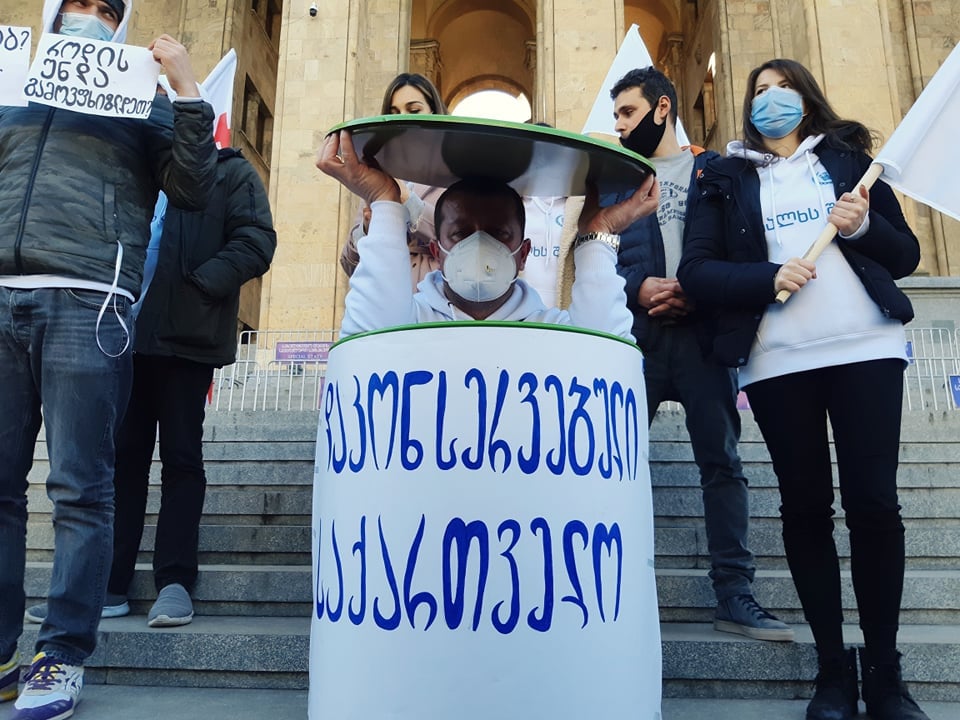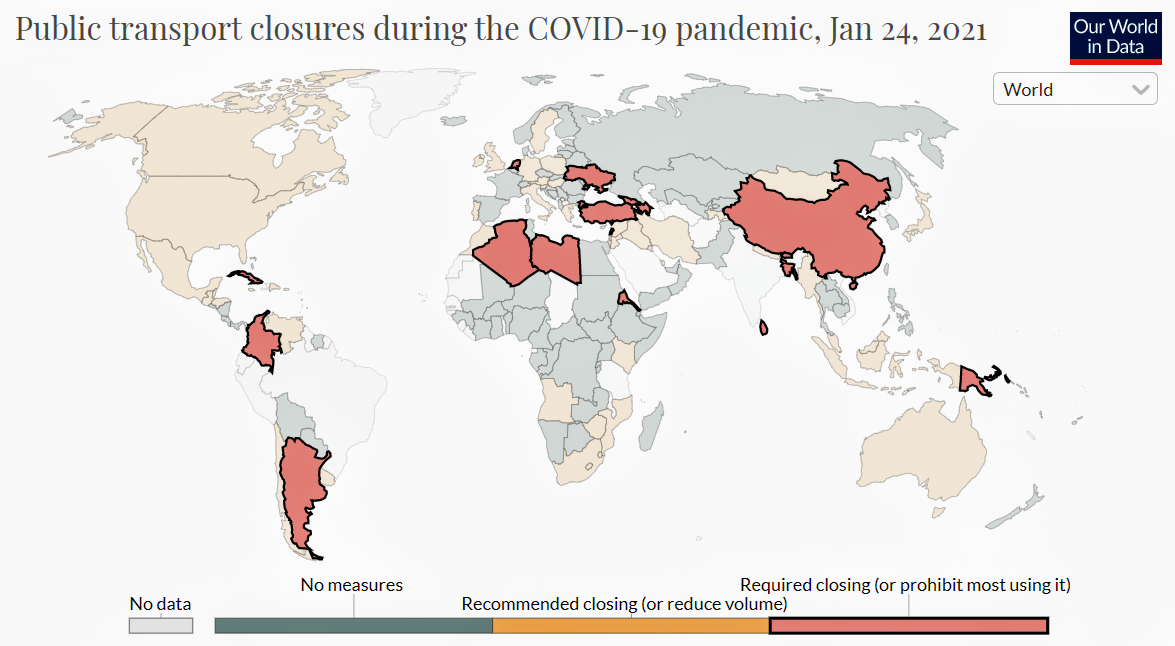
Georgia has witnessed at least six protests against different coronavirus restrictions over the past two days after the government announced that most of the measures would be extended until March.
There were three separate protests on Monday in Tbilisi against the anti-coronavirus curbs imposed by the government.
The largest, outside the Government Chancellery Building in central Tbilisi, was organised by the Greens group. The protester demanded the government restart public transport and cancel the nationwide 21:00 curfew.
The Greens, who asked politicians to stay away from their gathering, have argued that public transport was relatively less risky than reopening shopping centres, one of the few restrictions to be lifted on schedule on 1 February.
The group said that keeping public and inter-city transport halted put those who depended on them in a precarious situation compared to car owners.
The Greens also highlighted the restrictions’ toll on people’s mental health.
In the latest polls by the National Democratic Institute (NDI), most of those surveyed (39%) expressed pessimism about the future of the pandemic in Georgia while COVID-19 ended up, for the first time, among the top pressing national issues.
[Read more on OC Media: Gakharia’s support as PM skyrockets in new NDI poll]
Georgia has seen anti-lockdown protests mushrooming — with several yet pending — after 22 January, following the government’s announcement that most of the restrictions that were to be lifted from February would be extended until at least 1 March.
[Read more on OC Media: Georgia delays reopening economy]
Other protests included one on Monday by a group called United Youth for Georgia, who held a performance outside Parliament demanding ‘adequate steps’ from the authorities.

Another on Monday saw a gathering by Georgian dance schools outside the Education and Culture Ministry in Tbilisi protesting the fact that they have not been able to operate for ten months, and asking for some of the restrictions to be lifted.
On Sunday, anti-government groups Shetsvale (change) and For Georgia were joined by the youth wing of the Labour Party to march on the offices of the ruling Georgian Dream party. A number of protesters defied the curfew, but no one was reported to have been fined.
Also on Sunday, around 200 demonstrators together with opposition groups including Lelo, Girchi, and Strategy Aghmashenebeli protested the extended lockdown outside the Chancellery.
A group of teachers also gathered in the city’s Mziuri park on Sunday calling for schools to switch back to in-person teaching.
Strictest public transport prohibitions
The prohibition on public transport has been at the centre of many of the objections to the Georgian government’s coronavirus restrictions, with critics arguing that it disproportionately affects those who are worse off.
The global Stringency Index of Oxford’s COVID-19 Government Response Tracker, based on OurWorldInData, places Georgia among top 10 countries with the strictest anti-coronavirus government responses with 19 indicators combined — both throughout the past year and since last November.

The government has said they will relaunch public transport in only five Georgian cities from February, including Batumi, and only on weekdays as part of ‘gradual reopening’ while vaccines were on their way.
Earlier this month, 13 EU foreign ministers appealed to European Commission urging the Commission to commit to providing those six states, which includes Georgia, vaccine aid similar to those planned for the Western Balkans countries.
Public transport in Tbilisi, Rustavi, and Kutaisi is expected to be back no earlier than 1 March.
While public transport is generally considered a vector for COVID-19 transmission, practice to mitigate its risks have varied among countries and between and during the ‘waves’ of the outbreak.
After reintroducing public transport last May, the Georgian government mandated all travellers wear protective face masks in public transport and prohibited air conditioning in buses and minibuses.
However, the authorities never extensively monitored the number of commuters or social distancing in public transport, except for banning more than two passengers in taxis.
After six months, in late November, Georgia went under lockdown again.









